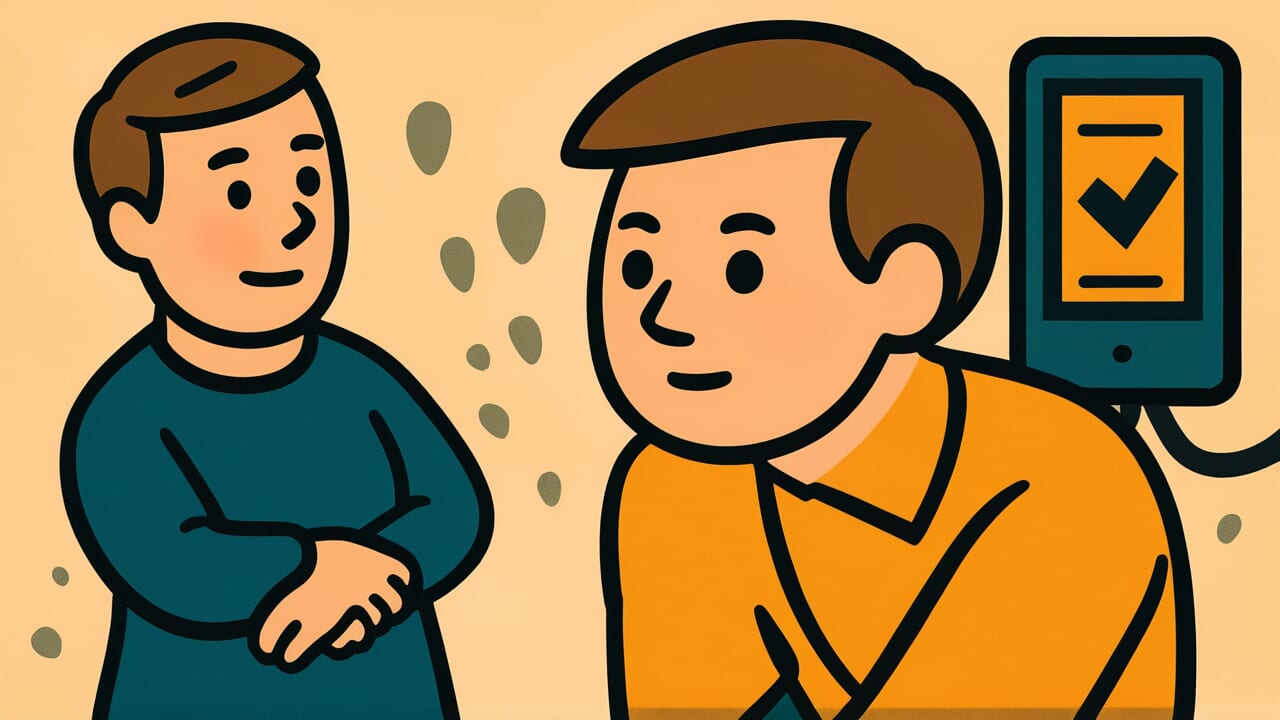How to Read “Wisdom is better than strength”
Wisdom is better than strength
WIZ-dum iz BET-er than strength
All words use standard pronunciation.
Meaning of “Wisdom is better than strength”
Simply put, this proverb means that being smart and making good decisions is more valuable than being physically powerful.
The literal words compare two human qualities. Wisdom means having good judgment and understanding how things work. Strength refers to physical power and force. The proverb says wisdom wins over strength every time.
We use this saying when smart thinking beats raw power. A small company might outsmart a giant competitor. A clever student might solve problems that stump stronger classmates. Parents use brains instead of force to guide their children. The idea appears everywhere in daily life.
People often realize this truth after seeing strength fail. Physical power runs out quickly. Smart thinking lasts much longer. Wisdom helps you avoid fights that strength would lose. It finds solutions that force cannot reach.
Origin and Etymology
The exact origin of this specific phrase is unknown. However, similar ideas appear in ancient texts from many cultures. The concept shows up in religious writings and old philosophical works.
This type of saying mattered greatly in ancient times. Physical strength determined survival in harsh conditions. Yet people noticed that clever thinking often worked better than brute force. Smart leaders built lasting kingdoms while strong warriors often fell.
The idea spread through religious teachings and moral instruction. Parents taught children that brain power beats muscle power. Teachers shared stories of clever people defeating stronger opponents. The saying traveled through generations because people kept seeing proof of its truth.
Interesting Facts
The word “wisdom” comes from an old English word meaning “knowledge” or “learning.” It connects to words about seeing and knowing clearly.
This proverb uses a simple comparison structure. It states one thing is “better than” another. This format helps people remember the message easily.
Similar phrases appear in many languages around the world. The comparison between mental and physical power seems universal across human cultures.
Usage Examples
- Coach to player: “You can’t just muscle through every defense – wisdom is better than strength.”
- Manager to employee: “Don’t try to force this difficult client situation – wisdom is better than strength.”
Universal Wisdom
This proverb reveals a fundamental truth about human survival and success. Throughout history, our species thrived not because we were the strongest creatures, but because we could think, plan, and adapt. Physical power has obvious limits, but mental power can grow and find creative solutions to seemingly impossible problems.
The tension between strength and wisdom reflects a deeper reality about how humans organize themselves. In any group, some people naturally rely on force while others depend on intelligence. Yet time consistently shows that sustainable success comes from smart strategy rather than raw power. Wisdom anticipates problems before they grow large. It finds ways to avoid conflicts that would waste energy and resources.
This pattern persists because wisdom addresses root causes while strength only handles immediate symptoms. A wise person prevents problems from starting. A strong person can only react after problems appear. Wisdom builds systems that work automatically. Strength requires constant effort and eventually fails when the person gets tired, sick, or old. The proverb captures why human societies ultimately reward those who think well over those who simply fight well.
When AI Hears This
Humans make a predictable mistake when judging others. We get impressed by what we can see right away. A person lifting heavy weights gets instant respect. Someone solving problems quietly gets overlooked. This happens everywhere – in job interviews, choosing leaders, even dating. We consistently pick the flashy person over the thoughtful one.
This bias exists because our brains evolved for quick survival decisions. Seeing physical strength meant immediate safety from threats. But modern life rewards different skills than ancient survival did. Our fast-judging system still runs automatically. We can’t easily see someone’s planning ability or emotional intelligence. These invisible talents only prove themselves over months or years.
What fascinates me is how this “flaw” actually protects humans. Quick physical assessments kept your ancestors alive in dangerous moments. Your brain still uses this ancient software in modern situations. The mismatch creates problems but also opportunities. Wise people can succeed precisely because others underestimate them. The bias that causes mistakes also creates hidden advantages.
Lessons for Today
Living with this wisdom means recognizing when to step back and think instead of pushing harder. Many people instinctively try to force solutions when problems arise. This approach works sometimes but often creates bigger difficulties. Learning to pause and consider different angles usually reveals better paths forward.
In relationships, this wisdom transforms how we handle disagreements. Instead of trying to win arguments through stubbornness or emotional pressure, we can listen carefully and find solutions that work for everyone involved. Wisdom helps us understand what other people really need. It shows us how to build cooperation instead of demanding compliance through force.
The challenge lies in trusting mental solutions when physical action feels more natural. Our instincts often push us toward immediate, forceful responses. Wisdom requires patience and confidence that thinking will produce results. It means accepting that the best answer might not be obvious right away. Yet those who develop this trust consistently find that patient wisdom opens doors that no amount of strength could budge. The ancient insight remains true because human nature has not changed.



Comments